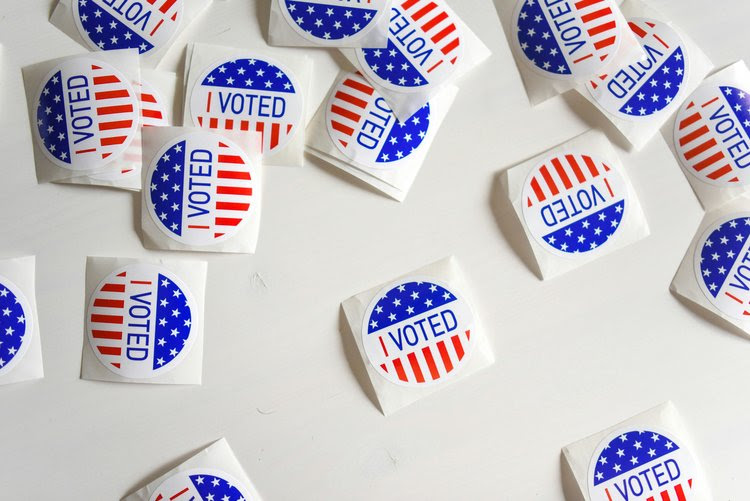
By Carlota Morgado de Almeida, NHCJE
As stated in the NHCJE Policy Platform, “Policy happens for people who participate”, so making it as easy as possible for people to exercise their voting rights is critical. Making voting more accessible, whether through automatic voter registration, no-exception mail-in ballots, or language accessibility, are our policy priorities to strengthen voting rights in New Hampshire. However, the state seems to be moving in the opposite direction as a bill tightening voter identification requirements is headed to the Governor’s desk.
Today, voters in New Hampshire must present documents proving their identity, age, citizenship, and domicile, such as a driver’s license or non-driver ID from any state, birth certificate, U.S. Passport/Passcard, or naturalization document. These may be shown in paper or electronic form, and a Qualified Voter Affidavit may be signed, under oath, in lieu of the documents. The proposed House Bill 1569 would remove any exceptions for proving voter identification, eliminating affidavits workarounds when the accepted documents can’t be shown for same-day voter registration.
If passed, this bill has the potential to impact the voting rights of first-time voters, like students and working-age voters, new residents to the state, communities of color, and new Americans, as well as older adults, the housing insecure, and people who changed their name after marriage. Ultimately, some feel as though New Hampshire is facing an “unprecedented voter suppression fight”, as the proposed legislation poses a threat to equity and democracy in the state.
New Hampshire’s Unique Voting Challenges
New Hampshire has one of the highest “voting costs” in the United States, ranking 50th in the 2022 Cost of Voting Index (COVI), which looks at the relative difficulty of voting in each state. The Granite State is among a minority of states that lack voting conveniences such as online and mail-in voter registration, registration through the DMV, automatic voter registration, and early voting without specific excuses. For McKenzie St. Germain, Director of the New Hampshire Campaign for Voting Rights, requiring “high-burden” citizenship documents poses a significant barrier for many eligible voters:
“What that means is a passport, a birth certificate, or naturalization papers. Some people have two of those, some people only have one, some people have that one and it no longer has their accurate name on it, or it has been lost and gone forever. It is also worth noting that it also requires proof of identity, age, and domicile. For example, even if I have my passport, if I don’t have something of my age on it, I am turned away.”
No other state has a law requiring documentary proof of citizenship to register to vote. A similar law was attempted in Kansas but was struck down in federal court after disenfranchising over 30,000 voters in just two years. On June 13th, the New Hampshire House voted against a similar bill targeting voter identification, House Bill 1370. As HB 1569 rests with the Governor, the potential impact on New Hampshire’s voters and democracy is profound.
Disproportionate Impact on Vulnerable Populations
The proposed legislation will likely disproportionately affect different population groups. According to a National survey cited by NPR, “1 in 10 adult citizens, or 21.3 million eligible voters, say they either do not have or could not quickly find to show the next day their U.S. birth certificate, passport, naturalization certificate or certificate of citizenship.” This report shows disparities by race and ethnicity, with people of color being more likely than their white counterparts to lack or not be able to locate citizenship documents.
The impacts of stricter voter identification laws can also be heightened in the case of New Americans, older adults, housing insecure, students, and first-time voters. Citizenship documents can be in storage or deposit boxes, or at a family member’s home in another town or state, leading to a lack of ready access for same-day voter registration in New Hampshire.
Additionally, individuals who changed their names might face additional barriers to casting their vote. Those who have recently changed their name amid marriage, divorce, or gender identity affirmation might struggle to provide documents that reflect their current legal status.
How to Take Action
Anything that causes unnecessary barriers to voting in New Hampshire threatens the core of democratic participation. The potential disenfranchisement of marginalized groups is a direct attack on the principles of equity and inclusivity that underpin a healthy democracy. It is imperative to advocate for voting reforms that expand and ease voting access, rather than restrict it, to ensure every citizen’s voice is heard.
Organizations that focus on voter suppression have information about volunteering opportunities and tools to take action on their websites. These include:





